Every time I sit down to write about Stealing Beauty I can’t form what I want to say about it. On a basic level: I like it. I found it moving and intriguing. That has as much to do with appreciating Bernardo Bertolucci as anything else, I suppose. His presence is felt: Stealing Beauty definitely feels like a Bertolucci film. What I mean is, watching it in the moment is a conflicted experience for me, where my expectations are constantly challenged and I don’t know how I feel about it. But I can’t shake the things I’ve seen and felt afterward. Even when it feels at the time to be slight and uninteresting and unchallenging, later I find significance, interest and am challenged by it. He leaves me with questions and feelings more than answers and definitive statements. I know this is good. I like it, as I said. I just find it hard to write about.
It features his continued interests in outsiders, sex, human expression, and modern art. What is unique is the way Liv Tyler’s Lucy is set so much as a counter to all the other characters. She is a virgin, she is an American, she is sort of a poet but not very accomplished. She is known primarily through her mother and her mother’s influence weighs on her. She is looking for someone. Two people. Her first love and her birth father.
The sexual frankness of her aunt’s family seems antagonistic because of her virginity.
She views sex differently than they do.
They consider her naïve and that bothers her.
Bertolucci is often
interested in a cinematic presentation of human sexuality. But he is more than a showman getting
his kicks from nudity; he comments on human sexuality in sometimes contradictory
and disturbing ways. If Last
Tango presented anonymous sexuality as an unachievable goal that ends in death, Stealing Beauty presents sexuality as a necessary evil. Not evil in the moral sense, because I
think Bertolucci has little interest in that, but he sees human sexuality as
biologically motivated yet emotionally devastating. Characters pursue it despite their better judgment. He presents a character in Lucy who views sex different from
the pseudo-Europeans lounging around in the nude, who discuss it frankly
whenever they feel like it. Lucy is
private and that sets her at odds.
She is immediately met
by subtle pushes against her modesty. When she goes out for a swim, Bertolucci teases us with her robe, as
if she might swim in the nude. She doesn't. He
quickly turns the tables by introducing Miranda’s character sunbathing in the
nude nearby.
Then Richard, the crass American comes over and after introducing
himself, strips down and dives into the pool. Bertolucci gives us a non-reaction from Miranda that tells
us his action is not a sexual effort (although we aren't so sure) and Lucy’s unclear face that reads as a
19-year old trying not to be embarrassed.
When the others learn
that Lucy is a virgin, it is clear they view her with a bit of contempt,
scorning her naïveté. But despite
their sexual frankness, they are trapped in relationships where the biological
urge is overruled by conventional monogamous expectations. When Richard makes clear advances
toward Lucy, he is found out by Miranda and quickly tries to lie and justify
himself. Ian seems slightly
enticed but knows he has too much to lose in such futile pursuits. He resigns himself to her artistic
depiction, which seems as much a result of sexual frustration as it does
creative inspiration.
The one most open, most
available is Niccoló, the one she came to find, but she is put off by his looseness. She fears that to love him would be
suicidal, just allowing herself to be one of his many sexual conquests. She pursues him for a while, somewhat begrudgingly and then,
when he is finally ready to have her, she is conflicted by her emotional investment
in him over all these years and in what she knows about him now. He is not the one she loved. She sees who he is; she is not naïve. In the heat of passion, she sides with reason, denying her lust. After this we learn that she was conceived in that very olive grove in a one-time
fling. She doesn’t want to re-live
her mother’s history. She wants to
write a new story.
Bertolucci gives a
startling, surreal image that expresses the frustration of sexuality in a clever
and dynamic way. At the party at
Niccoló’s home, a woman is posing outside in front of some bushes. A man who has been pursuing her watches
as she strips and slyly hides in the bushes. The man follows behind her as Stevie Wonder’s “Superstition”
starts playing. Bertolucci pans
down as a mime passes in foreground.
The camera settles on the mime's ankles as another mime grabs each ankle and would appear to be dragged across the ground but looks more like he is swimming.
Over the course of the
film, the pristine Tuscan landscape seems subverted. It is a picturesque world left unexplored by the characters
who are so myopically motivated that they enjoy the setting of the world
without any investment in it. At
some point, it even becomes a burden to Diana. Ian would think he needs the landscape for inspiration but his sculptures pepper his view. They are all abstracted wooden carvings of people.
Sex has not paid the dividends expected for those at the villa. In a shocking scene, Lucy brings home a drunk English boy from the party and pretends to make out with him conspicuously in view of the secret on-lookers. She knows they will be watching and she gives them what she thinks they want. And the men respond by pursuing their own sexual encounters with those close to them. But for her, she knows it is an act. Sex is a game. She and the boy sleep in opposite ends of the room. They don't even kiss. She thanks him for nothing when he leaves.
None of this even mentions the central relationship of the film, which is Lucy's strange relationship with Alex. He is an old poet slowly dying of what is presumed to be AIDS. His advances are also denied, though his interest in Lucy seems beyond the physical. He becomes her true friend, mostly because of his willingness to connect with her. The other characters fret a little about Lucy becoming bored, but they hardly try to connect with her.
Lucy will ultimately deny the sexual openness of the villa, though she has toyed with embracing it. She ultimately sees it to be hollow and unfulfilling. Sex is private and personal. She wants to keep it that way.
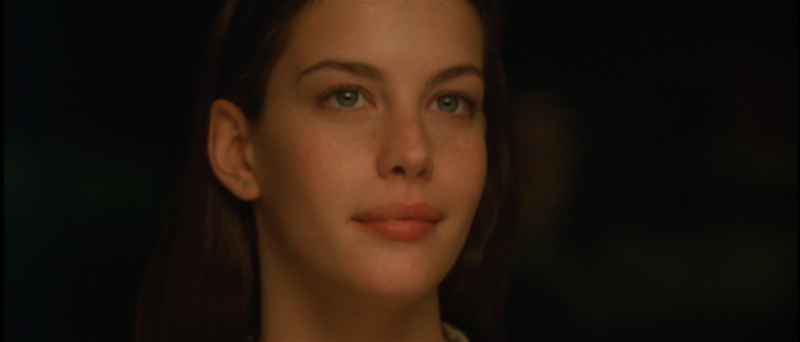
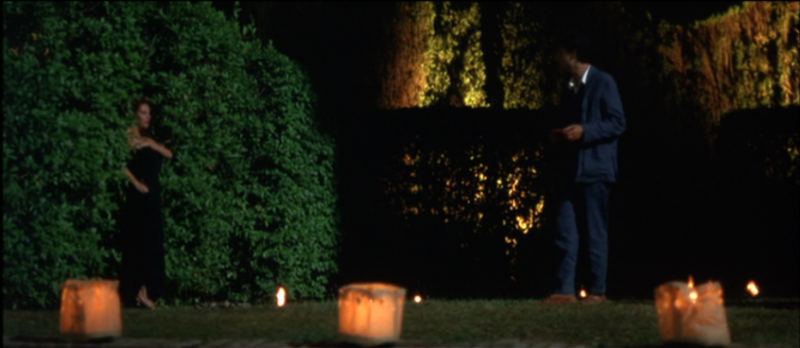
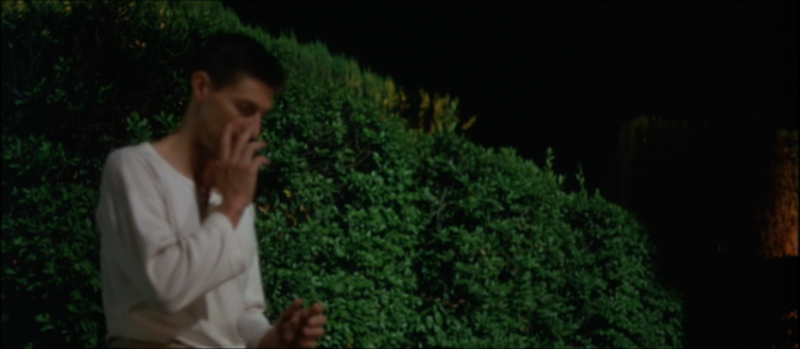
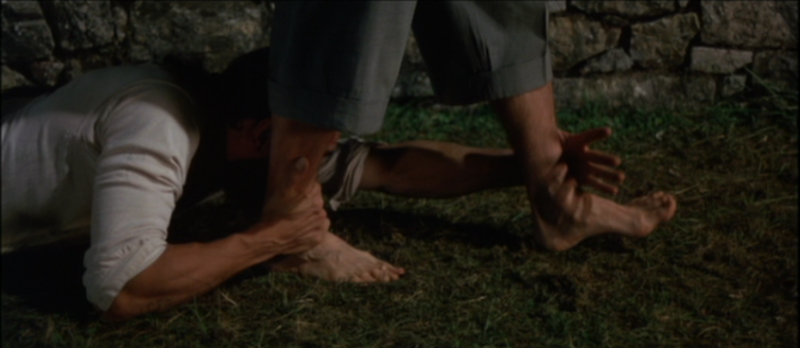
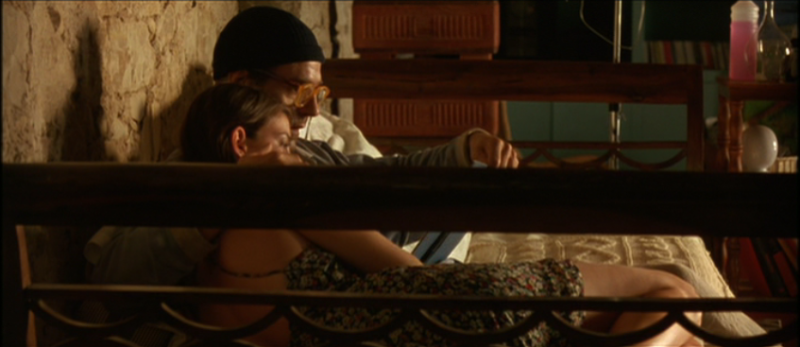
No comments:
Post a Comment